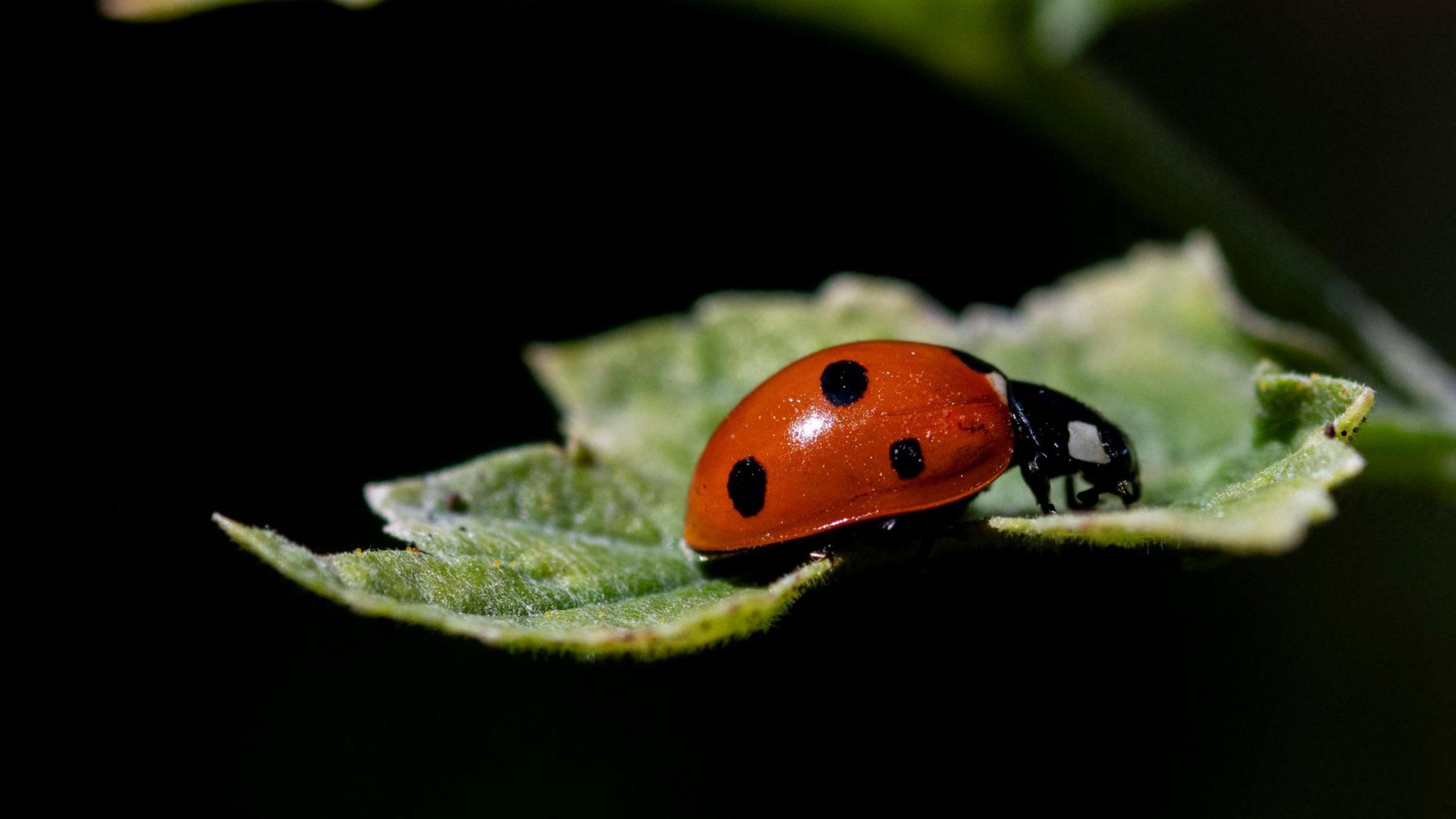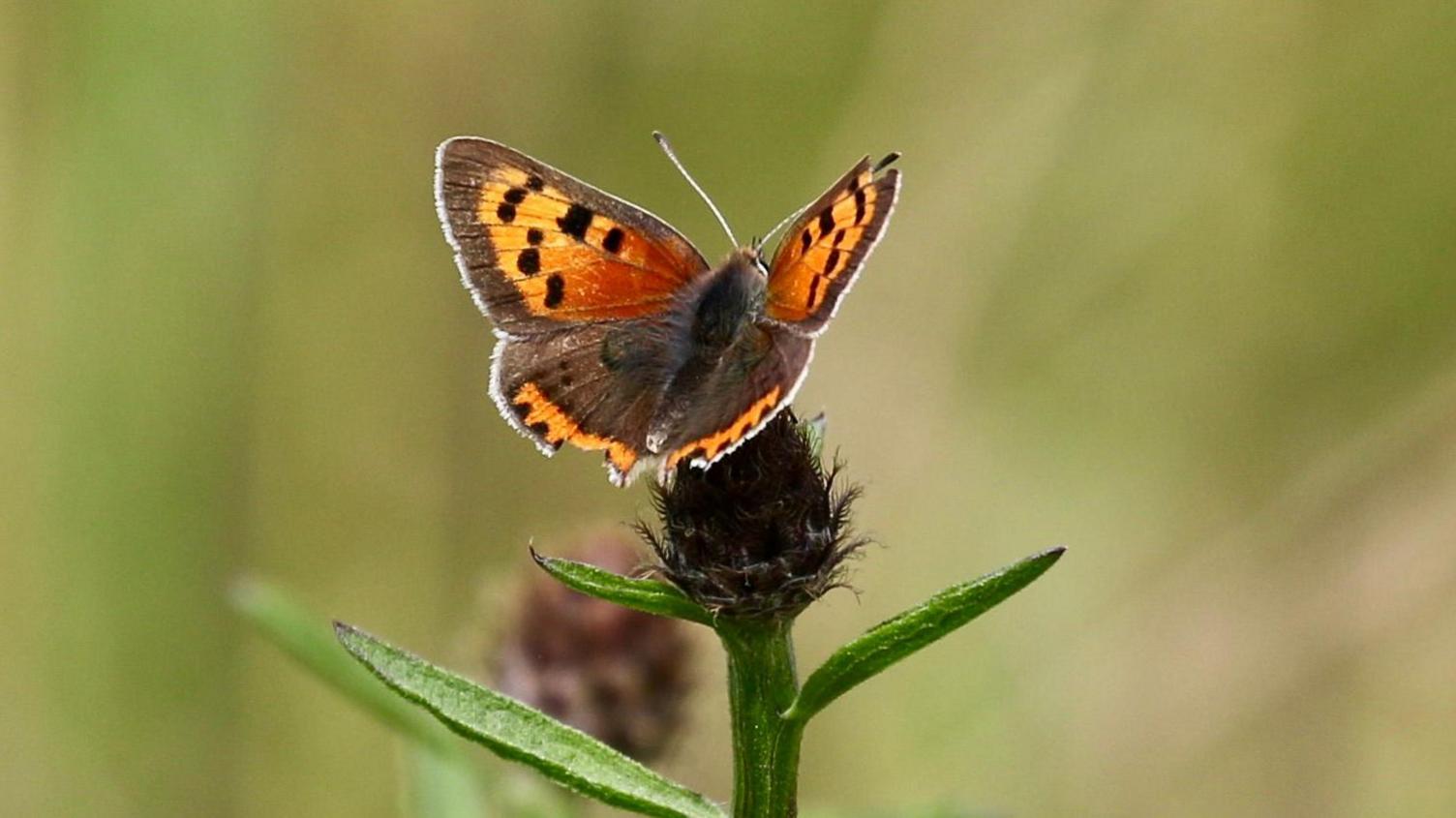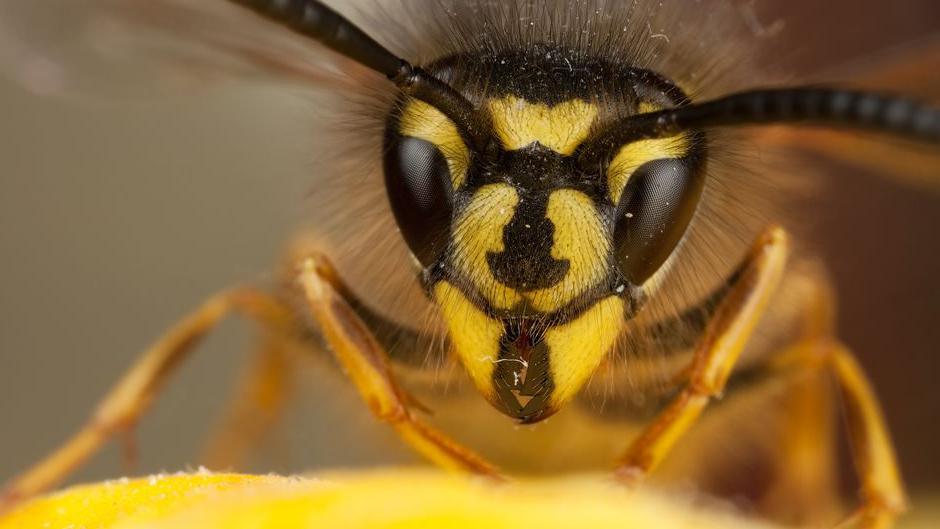Extreme winter bad for bugs says expert

A number of insects, such as ladybirds, had successful summers
- Published
An extreme winter could cause some insect populations to decline, despite a good summer, an expert has said.
Self-proclaimed "bug botherer" Dr Dave Skingsley, from the University of Staffordshire, said populations of some insects that had a successful summer could take a hit over the colder seasons.
Certain insects - including ladybirds, butterflies and wasps - thrived in 2025 after the warmest and sunniest spring on record across the UK.
Dr Skingsley said a good summer had been needed, with the UK's flying insect population appearing to be in decline, external.
While invertebrate populations are difficult to estimate, experts from the Royal Horticultural Society said that 2025 has been a bumper year so far.
However, Dr Skingsley, senior lecturer in health, education, policing and sciences at the university, said that the conditions in the coming winter will have as much of an impact on populations as the summer.
"If we have another cold or warm, wet winter then that will change the dynamics of what will emerge in spring," he said.
"The lifecycle of invertebrates can be fragile and bad weather is one of the things that could really affect their survival rate over the winter.
"Extreme weather equals extreme consequences for insects.
"So a winter that's not too wet and just the right amount of cold, in the right places, would be perfect."

Wendy Carter, from Worcestershire Wildlife Trust, said extreme weather appears to becoming more regular
Wendy Carter, communication manager at Worcestershire Wildlife Trust said it is difficult to say what a good winter will look like, as different insects prefer a variety of conditions.
However, a winter with relatively normal conditions is the best across the board.
An increase in extreme weather conditions, including Atlantic storms and cold snaps are part of the reason insect populations are declining, Ms Carter.
"Nature is incredible at bouncing back," she added.
"Over hundreds of years, an extreme summer and an extreme winter, insects can bounce back from that.
"What we're seeing now is that those extreme weather events are happening much more frequently, and it is much harder to bounce back if you're constantly getting battered by extreme events."
Get in touch
Tell us which stories we should cover in Staffordshire
Follow BBC Stoke & Staffordshire on BBC Sounds, Facebook, external, X, external and Instagram, external.
Related topics
- Published26 July

- Published19 July
